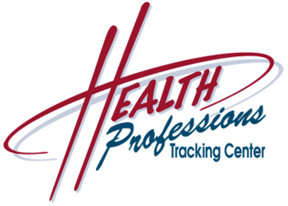 The UNMC Health Professions Tracking Center (HPTC), a unique service for tracking health professionals, will seek approval of the University of Nebraska Board of Regents today to start providing its services to the Wyoming Health Care Commission. The one-year contract would be renewable on an annual basis.
The UNMC Health Professions Tracking Center (HPTC), a unique service for tracking health professionals, will seek approval of the University of Nebraska Board of Regents today to start providing its services to the Wyoming Health Care Commission. The one-year contract would be renewable on an annual basis.
“This is a landmark event for the HPTC and the State of Wyoming,” said Kolene Kohll, director of the HPTC. “It demonstrates the quality of our program and bodes well for the potential growth of the HPTC in the future. In Nebraska, the HPTC has been critical for health care workforce planning — determining future supply and demand trends, identifying assets, detecting shortfalls, facilitating strategies and promoting sophisticated forecasting — effectively and efficiently.”
“We believe the HPTC has developed a system that will allow us to obtain better information in a more timely manner than we could achieve on our own,” said Steve Mossbrook, vice chairman of the Wyoming Health Care Commission. “The value to Wyoming will be well worth the investment, and Kolene and her staff have been very professional and responsive. We expect this information will allow us to significantly improve the quality of our health care decisions.”
The Wyoming contract will be similar to what the HPTC is already providing to Nebraska and Southwest Iowa, Kohll said. Through extensive surveying, the HPTC will compile data on the approximately 5,000 health professionals practicing in Wyoming. These include physicians, physician assistants, nurse practitioners, dentists, pharmacists, pharmacies, medical clinics, and acute care hospitals.
“We hope to establish an accurate foundation for the State of Wyoming and have preliminary data available in time for the Wyoming Legislative session,” Kohll said. “Meeting the needs of health care demands for underserved and disadvantaged populations is challenging and a major area of concern for state officials, educators, policymakers, researchers, industry leaders and the general population.
“The absence of a reliable health care workforce information system hampers efforts to address future shortages and measure the success of programs implemented to tackle these disparities. It is important data that is vital to helping Wyoming move forward in making many of its key health policy decisions. An accurate health professions inventory will pay big dividends back to the State of Wyoming. It’s a good investment for the state to make, and we are extremely excited about the partnership.”
The Wyoming Health Care Commission, created during the 2003 legislative session, is charged with developing strategies for improving access to health care, improving quality and slowing cost increases in Wyoming.
Thirteen Wyoming citizens committed to improving health care in their state have accepted appointment to this commission. Broad issues examined include affordability, accessibility, disease prevention, medical errors reduction, workforce shortages and cost-shifting.
“Working with the Wyoming Health Care Commission has been a very pleasant experience,” Kohll said. “They are positive, forward-thinking people.”
The HPTC was initiated by UNMC in 1995, with Kohll being the only employee. The addition of the Wyoming contract means the HPTC staff will grow to a total of 17 full and part-time employees.
“The HPTC has been a tremendous success story for the medical center,” said Harold M. Maurer, M.D., UNMC Chancellor. “It has truly become a model program for the entire country. We have been contacted by many other states interested in having the HPTC manage its tracking of health professionals.”
Kohll said much of the national interest in the HPTC was spawned by several presentations to high-level national leaders at the Centers for Disease Control and Prevention (CDC), the U.S. Homeland Security and health care workforce arenas.
“We have the only ‘pure’ health professions tracking center in the country,” Kohll said. “Other companies dabble in health professions tracking as just one part of their business portfolio. We’re the only center that has a dedicated staff that does health professions tracking exclusively. It is our only focus. It allows us to be more accurate than other companies, and it sets us apart from everyone else. The HPTC staff does an outstanding job to assure accurate and timely information.”
Kohll said the growth potential of the HPTC is “tremendous.” She said 29 states have made initial contacts with her about the possibility of the HPTC providing its services.
In the meantime, the HPTC has been expanding gradually with the addition of two other contracts, including:
- Tracking the dental professionals in Nebraska, Kansas, South Dakota and Wyoming through the Target Access: Great Plains for Oral Health Initiative;
- A $1 million earmarked grant to create the Center for Rural Biosecurity, which allowed the HPTC to expand its inventory of Nebraska health professionals by adding more than 15,000 veterinarians, water safety operators and behavioral health professionals.